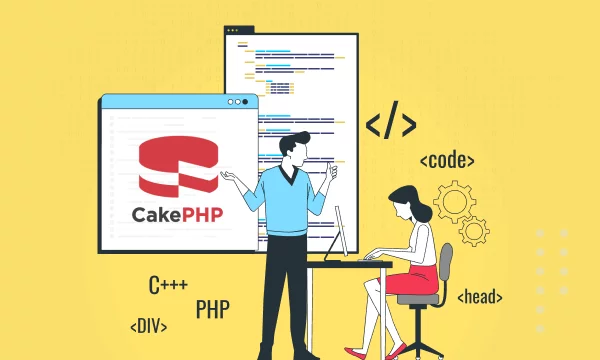PHP (Hypertext Preprocessor) is a widely used open-source scripting language for developing server-side web applications. It has been around for over 25 years and has a large and active community of developers. However, in recent years, there has been some speculation that PHP may be dying.
In this blog post, we will take a look at PHP usage statistics and market share to see if there is any evidence to support this claim. We will also discuss the challenges and opportunities facing PHP in the future.
PHP Usage Statistics

PHP Usage Statistics
PHP is one of the most popular web development languages in the world. According to the TIOBE Index, PHP is the 8th most popular programming language in the world, with a 7.8% share of the market. It is also the most popular language for developing web applications, with a market share of over 70%.
In addition, PHP is used by some of the most popular websites in the world, including Facebook, Wikipedia, and WordPress. These sites alone generate billions of page views each month, which is a testament to the scalability and reliability of PHP.
PHP Market Share
PHP’s market share has been declining in recent years. This is due in part to the rise of newer and more popular languages like JavaScript and Python. However, it is important to note that PHP’s market share is still very large, and it is likely to remain a popular language for many years to come.
Challenges Facing PHP
While PHP remains a popular and widely used programming language, it faces certain challenges in the evolving landscape of web development. Some of the challenges include:
Performance Concerns
Although PHP has improved significantly over the years, concerns about performance persist. While it can handle a wide range of tasks, high-performance requirements may lead developers to consider other languages or implement optimizations.
Concurrency and Asynchronous Processing
PHP traditionally follows a synchronous execution model, which can be a limitation for applications with heavy concurrent and asynchronous processing requirements. While solutions exist, such as event-driven architecture, handling these scenarios may be more complex compared to languages designed with asynchronous processing in mind.
Language Complexity
The flexibility and ease of use that make PHP accessible to beginners can also contribute to codebases becoming less structured and more challenging to maintain in larger projects. This can lead to issues with scalability and code organization.
Inconsistencies in Standard Library
PHP’s standard library can be inconsistent, with function names and parameter orders varying between different modules. This can make it more challenging for developers to navigate and work with the language effectively.
Security Concerns
While PHP has built-in security features, the language has faced criticism for certain historical security vulnerabilities. Ensuring the secure development of PHP applications requires adherence to best practices and continuous vigilance.
Competition from Other Languages
With the rise of newer languages and frameworks, PHP faces competition from alternatives that may be perceived as more modern or specialized for certain use cases. Developers may be drawn to languages like Python, Node.js, or Go for specific projects.
Limited Support for Modern Development Patterns
Some argue that PHP has been slower to adopt certain modern development patterns, such as full support for object-oriented programming in its earlier versions. Although improvements have been made, PHP’s evolution may not always align with the latest trends in software development.
Dependency Management
While dependency management has improved with tools like Composer, managing dependencies in PHP projects can still be challenging, especially when dealing with conflicting dependencies or ensuring compatibility across different libraries and frameworks.
Lack of Built-in Support for Microservices
PHP, historically designed for monolithic architectures, may not be the first choice for developers working on microservices-oriented projects. While it is possible to implement microservices in PHP, other languages and frameworks may offer more native support for this architecture.
Upgrading Legacy Codebases
Many existing projects are built on older versions of PHP, and upgrading to newer versions can be a significant undertaking. Compatibility issues and the need for codebase adjustments may pose challenges for developers maintaining or upgrading legacy PHP applications.
Despite these challenges, it’s important to note that PHP continues to evolve, and efforts are made to address these issues. The PHP community actively contributes to improvements, and the language remains a reliable choice for a wide range of web development projects.
Opportunities for PHP
Conclusion
PHP is not dead. It is a mature and well-established language with a large and active community of developers. While it is facing some challenges, PHP also has a number of opportunities in the future. It is likely to remain a popular language for many years to come.
In addition to the information above, I would also like to add that PHP is a very versatile language that can be used to develop a wide variety of applications. It is also relatively easy to learn and use, which makes it a good choice for beginners.
If you are considering using PHP for your next web development project, I encourage you to do your research and weigh the pros and cons carefully. PHP is a powerful and versatile language that can be a great choice for many projects. However, it is important to be aware of the challenges it faces so that you can make an informed decision.